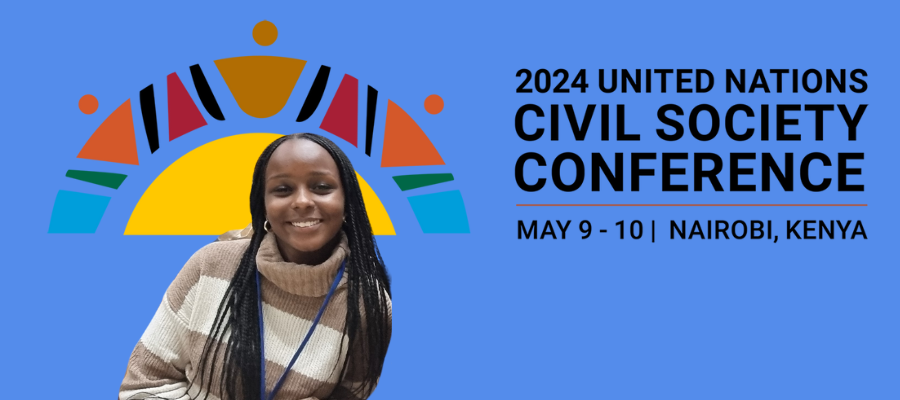
I did not quite know what to expect when attending the Civil Society Conference in Nairobi, Kenya. The focus I had on the first day was on the success and barriers of meaningful youth engagement; what intergenerational solidarity looks like; and the idea of multilateralism and what they would look like in the real world.
Many different ideas and perspectives were shared and recognized, some agreed upon and some disagreed upon. One point that I think everyone agreed on was the issue of youth involvement in global advocacy. A point was made that over 50% of the world population is youth, however, when it comes to these kinds of spaces, representation is low. Therefore, informed decisions affecting future generations are not addressed within the scope of the building blocks of future generations. Involving youth in decision making and implementation is important because youth and children are our future, and if they do not start to fix things as soon as now, who will?
Involving online community development and outreach programs that are youth centered and tackle environmental and socio-economic problems will break more barriers. Youth minds are fresh with ideas and will bring about reforms that will change our present to build our future.
More universal structures would mean more diverse perspectives not just gender wise but age wise as well. The universal structures also cater for geographical concerns in the sense that we can create forums of more widespread approach rather than having a select few individuals speaking for communities. We would have larger communities of youth speaking in unison. It would tackle language barriers in a way if we could have universal structures because many different regions and countries would be represented.
I loved the diversity, and I learned a lot from the different NGO representatives I met. However, I think some of the ideas in the impact coalitions could be reviewed. For example, in the Drug Policy coalition, there was talk about legalizing cannabis with the purpose of reducing its usage. However, I believe bringing in a whole new drug into the mix will only stir up more problems with drug use and weaken the policy, completely defeating its purpose. Some examples were given that in Canada the rate of people who use cannabis reduced after it was produced. However, that is a first world country with a means of containing distribution and backing up its policy.
If we were to implement this policy in somewhere like Kenya, it would fail tremendously and create a cycle of drug-use especially among the youth, which would in turn defeat the purpose of the policy. Arguments could be made that if cannabis is taxed high, the government would be making money and simultaneously less people will use it because it is expensive. But this then poses the question of whether we are doing it for the government, or for the betterment of our societies?
Less does not mean none. Are we doing it to advance development but reduce the morale of our citizens, creating pathways for more and more addicts to emerge in society? Certainly not! I believe that we should instead set stricter age restrictions and distribution terms to ensure that drugs are only available to people over 18 (21 in some countries) and aid firms that distribute them with Scandit so that they do not sell drugs to anyone who is underage.
On a brighter note, I started a project at my school that encourages youth engagement in the discussion of issues facing youth today that factor into development and sustenance. The project is named Roundtables and its slogan is ‘Not Okay But That’s Okay’ because it is not okay how we are living now, it is not sustainable for anyone, But together, we can help come up with new ideas and possibly come up with solutions that will make a better future. The goal is to have this project set up in many schools and different public areas so that the youth have a space to participate actively in the development of our world.
I want to thank the Institute of the Blessed Virgin Mary for giving me this opportunity. I hope that in time to come we will see more youth engagement and improved intergenerational solidarity for a better tomorrow.
Read Keendi’s statement on Mental Health HERE.
Author: Keendi M
